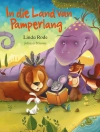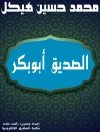In ‘What the Moon Saw: and Other Tales, ‘ H. C. Andersen presents a captivating collection of stories that epitomize his mastery of fairy tale narrative. The book delves into themes of innocence, imagination, and the supernatural, with a distinctive blend of whimsy and moral underpinning. Andersen’s characteristic lyrical prose and vivid imagery invite readers into a fantastical realm where the moon observes human experiences and quandaries, offering wisdom through enchanting tales that bridge the gap between the mundane and the magical. Each story resonates with the essence of Romanticism, reflecting a deep appreciation for nature, emotion, and the complexities of the human condition. H. C. Andersen, a luminary in the realm of fairy tales, drew inspiration from his humble beginnings and early experiences in Denmark. His voracious imagination and keen insight into the human psyche enabled him to weave narratives that resonate across generations. Andersen’s own life was steeped in a quest for understanding and acceptance, a theme that often surfaces in his works, including the exploration of societal norms and individual identity. This collection is highly recommended for readers seeking a profound yet whimsical journey through the intricacies of life and the power of dreams. Whether for young readers or the young at heart, ‘What the Moon Saw’ offers timeless lessons that remain relevant, inviting a sense of wonder and reflection on our shared humanity.
A propos de l’auteur
Hans Christian Andersen, born on April 2, 1805, in Odense, Denmark, has secured an indelible place in literary history as one of the most prominent figures in fairy tales and children’s literature. His work is characterized by a poetic style that blends folk elements with personal invention, often incorporating themes of optimism, resilience, and the resilience of the human spirit. ‘What the Moon Saw: and Other Tales’ is just one example of Andersen’s ability to transform the ordinary into realms of extraordinary imagination and emotional depth. Andersen’s tales are not mere children’s stories; they embody sophisticated narratives that appeal to audiences of all ages, addressing universal themes with grace and often a moral undertone. With an oeuvre that includes such enduring classics as ‘The Little Mermaid, ‘ ‘The Ugly Duckling, ‘ and ‘The Emperor’s New Clothes, ‘ Andersen’s influence extends far beyond his native Denmark, earning him international acclaim. His literary contributions have been recognized by a myriad of translations, and his stories persist as cultural touchstones worldwide. Andersen’s legacy as a storyteller has, undeniably, shaped the genre of modern fairy tales and continues to enchant readers with its timeless charm.












